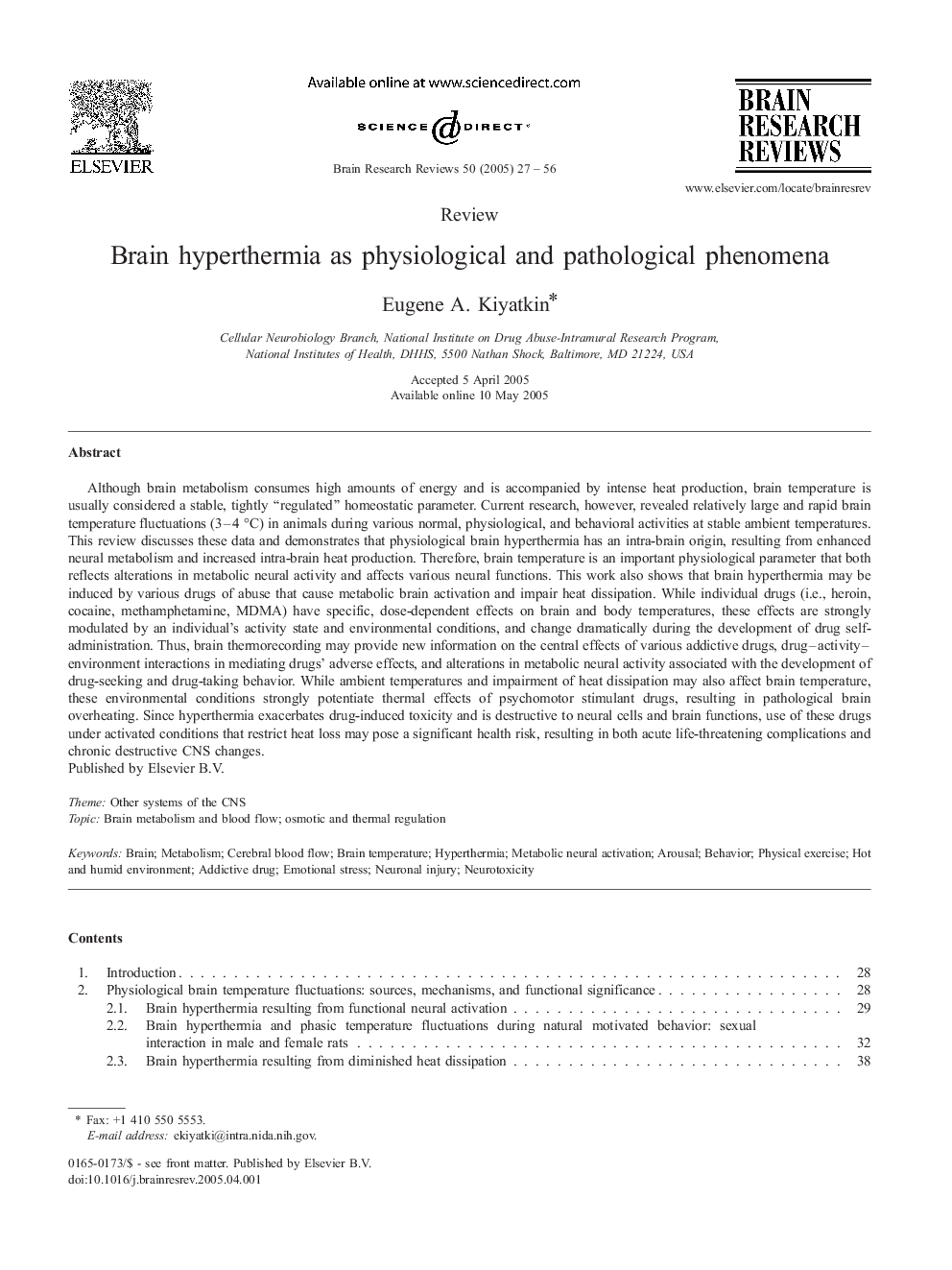| کد مقاله | کد نشریه | سال انتشار | مقاله انگلیسی | نسخه تمام متن |
|---|---|---|---|---|
| 9423042 | 1294768 | 2005 | 30 صفحه PDF | دانلود رایگان |
عنوان انگلیسی مقاله ISI
Brain hyperthermia as physiological and pathological phenomena
دانلود مقاله + سفارش ترجمه
دانلود مقاله ISI انگلیسی
رایگان برای ایرانیان
کلمات کلیدی
Neuronal injury - آسیب های عصبیEmotional stress - استرس احساسیarousal - انگیختگیcerebral blood flow - جریان خون مغزیBrain temperature - دمای مغزBehavior - رفتارNeurotoxicity - سمیت عصبیOther systems of the CNS - سیستم های دیگر CNSMetabolism - متابولیسم Hot and humid environment - محیط گرم و مرطوبBrain - مغزphysical exercise - نرمشHyperthermia - هیپرترمی
موضوعات مرتبط
علوم زیستی و بیوفناوری
علم عصب شناسی
علوم اعصاب (عمومی)
پیش نمایش صفحه اول مقاله

چکیده انگلیسی
Although brain metabolism consumes high amounts of energy and is accompanied by intense heat production, brain temperature is usually considered a stable, tightly “regulated” homeostatic parameter. Current research, however, revealed relatively large and rapid brain temperature fluctuations (3-4 °C) in animals during various normal, physiological, and behavioral activities at stable ambient temperatures. This review discusses these data and demonstrates that physiological brain hyperthermia has an intra-brain origin, resulting from enhanced neural metabolism and increased intra-brain heat production. Therefore, brain temperature is an important physiological parameter that both reflects alterations in metabolic neural activity and affects various neural functions. This work also shows that brain hyperthermia may be induced by various drugs of abuse that cause metabolic brain activation and impair heat dissipation. While individual drugs (i.e., heroin, cocaine, methamphetamine, MDMA) have specific, dose-dependent effects on brain and body temperatures, these effects are strongly modulated by an individual's activity state and environmental conditions, and change dramatically during the development of drug self-administration. Thus, brain thermorecording may provide new information on the central effects of various addictive drugs, drug-activity-environment interactions in mediating drugs' adverse effects, and alterations in metabolic neural activity associated with the development of drug-seeking and drug-taking behavior. While ambient temperatures and impairment of heat dissipation may also affect brain temperature, these environmental conditions strongly potentiate thermal effects of psychomotor stimulant drugs, resulting in pathological brain overheating. Since hyperthermia exacerbates drug-induced toxicity and is destructive to neural cells and brain functions, use of these drugs under activated conditions that restrict heat loss may pose a significant health risk, resulting in both acute life-threatening complications and chronic destructive CNS changes.
ناشر
Database: Elsevier - ScienceDirect (ساینس دایرکت)
Journal: Brain Research Reviews - Volume 50, Issue 1, 1 December 2005, Pages 27-56
Journal: Brain Research Reviews - Volume 50, Issue 1, 1 December 2005, Pages 27-56
نویسندگان
Eugene A. Kiyatkin,